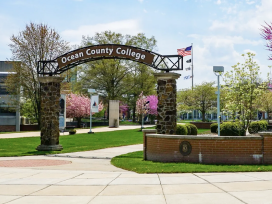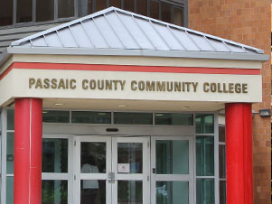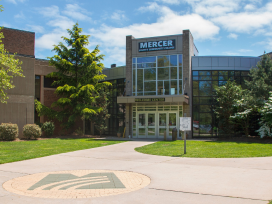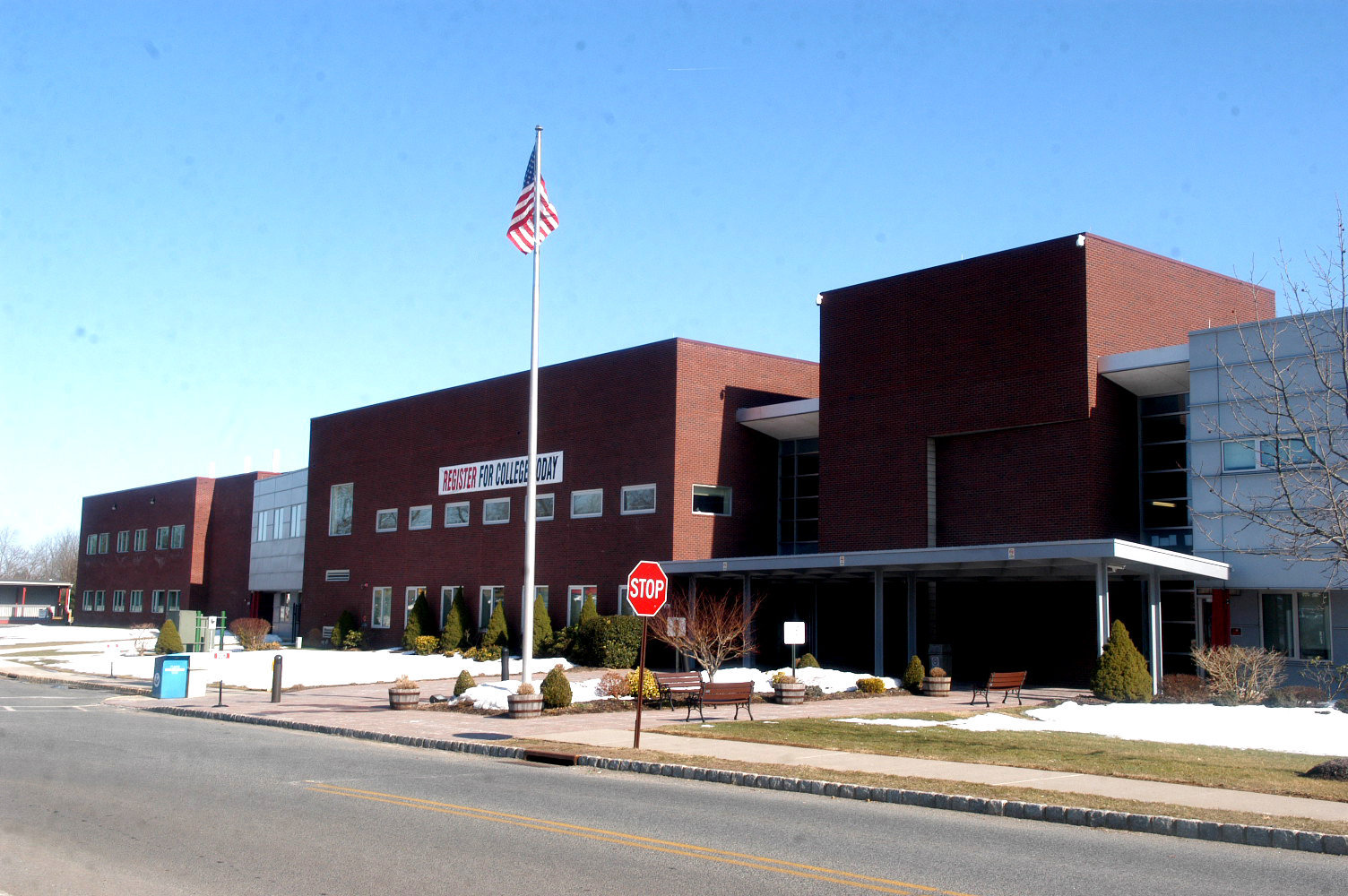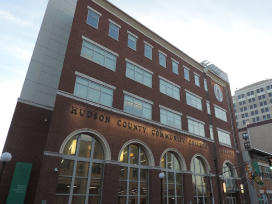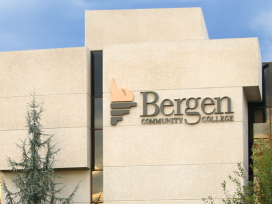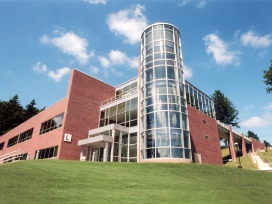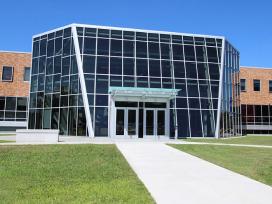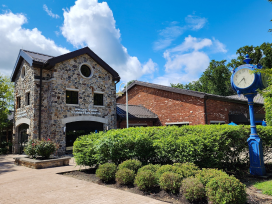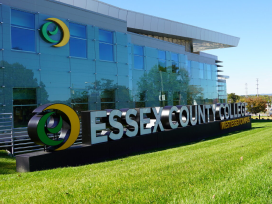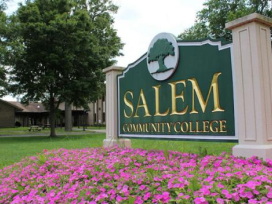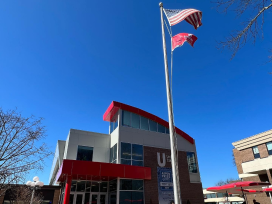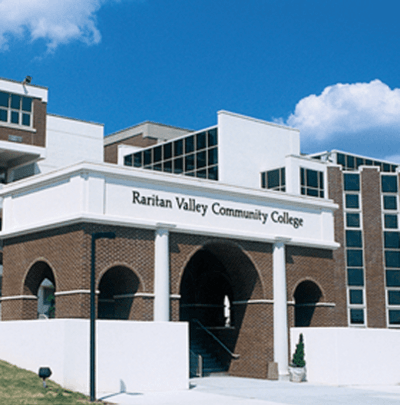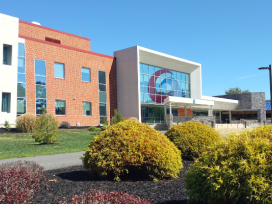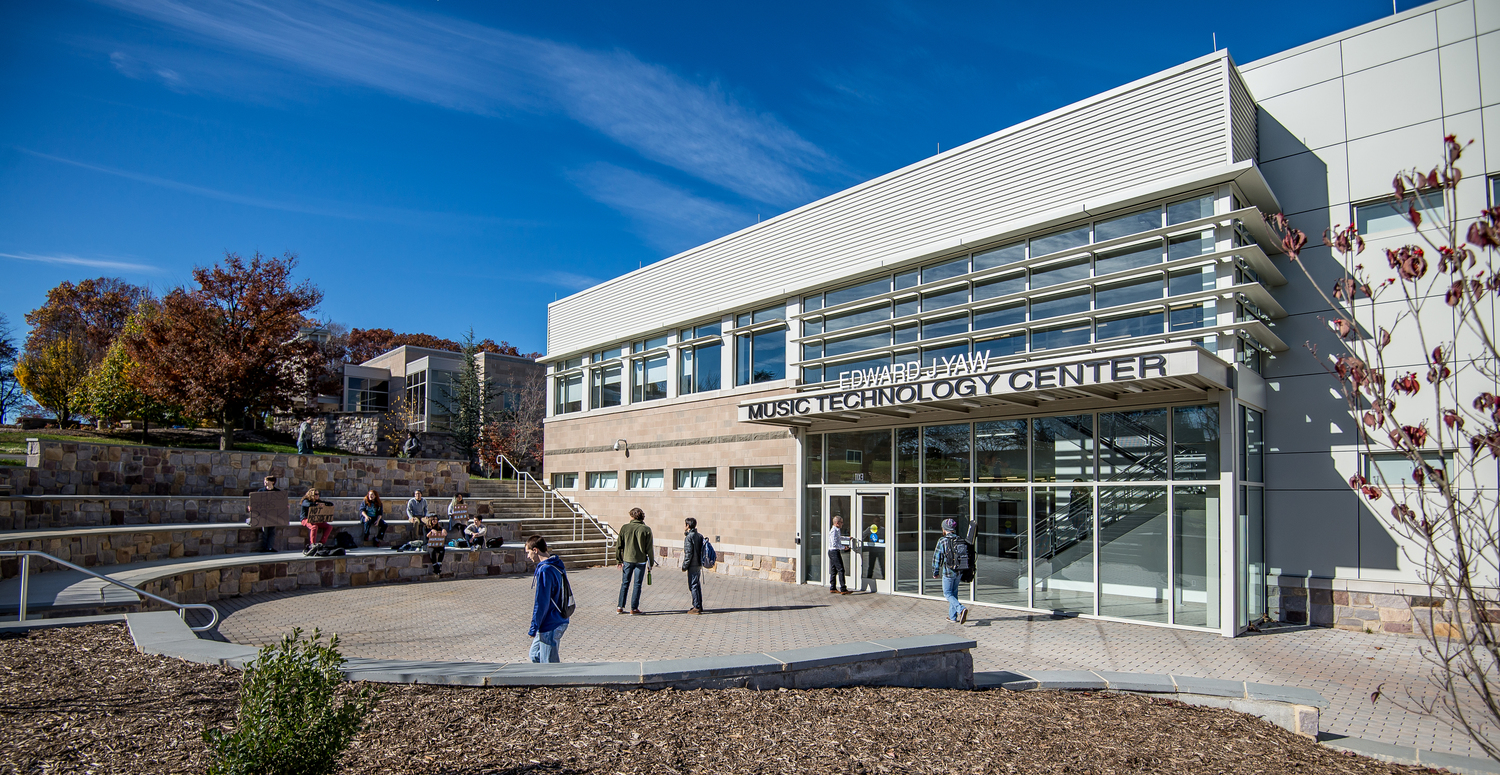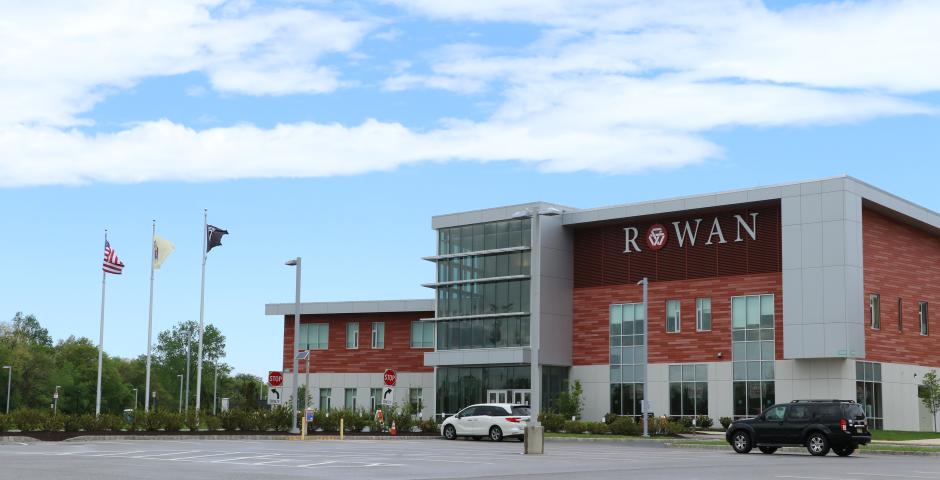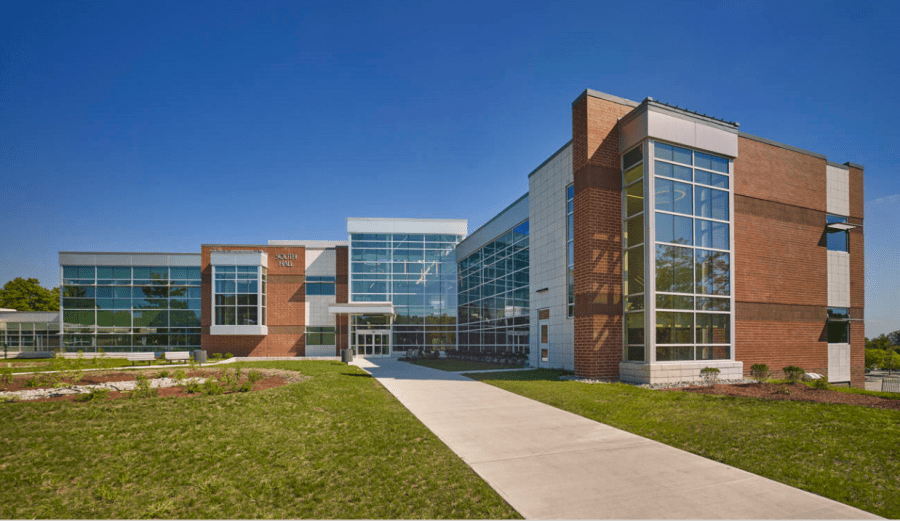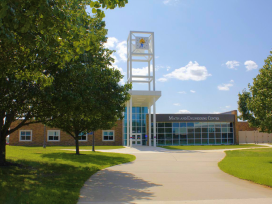National Thought Leaders Share Insights with NJ Community College and Business Leaders to Help Map Out Future of NJ Pathways Initiative
Atlantic City, NJ, June 7, 2023 – To continue to plot the course for transformation and innovation in the alignment of education and the needs of business in New Jersey, nearly 200 NJ Community College, education and workforce partners, business partners, and national experts gathered for the two-day New Jersey Pathways to Career Opportunities Summit at Bally’s Atlantic City Hotel and Casino.
“Informed by the insights of these incredible national thought leaders, we are charting the course for the future of the New Jersey Pathways to Career Opportunities Initiative,” said Aaron R. Fichtner, Ph.D., New Jersey Council of County Colleges (NJCCC) President. “Building on the momentum of the first year of the Pathways Initiative, our conversations with these experts will help us solidify a strong, flexible, and sustainable infrastructure of collaboration that engages industry and education partners across the state to align education to build an innovative workforce.”
The four national speakers were: Rachel Lipson, Co-Editor, America’s Hidden Economic Engines, and Founding Director, The Project on Workforce at Harvard; Dr. Holly Zanville, Co-Lead, Credentials as You Go, Research Professor and Co-Director, Program on Skills, Credentials and Workforce Policy, George Washington University; Dr. Annelies Goger, Fellow, The Brookings Institution; and Iris Palmer, Deputy Director of Community Colleges, New America. The speakers discussed the trends and innovations in education and training, specifically about national lessons learned, stackable credentials, and work-based learning and apprenticeships.
“All of us at The Project of Workforce at Harvard, believe Community Colleges offer immense promise for this country. Community Colleges are at the center of their regional economies. Why are Community Colleges so critical? They are at the heart of our democracy. They combat economic inequality. They combat racial inequality. They combat geographic inequality. Simply put, Community Colleges will be at the center of the solution to bring more opportunity to more people,” said Lipson.
“Creating an integrated ecosystem nationally where all Community Colleges use the same terminology for stackable credentials with real connectivity, where we are more centralized, will help our nation move forward. We must know and learn what our neighbors are doing instead of just being hyper-focused on what our own state is doing. We must create one language that educators speak,” said Dr. Zanville.
“We need to create a more permeable system, where apprentices don’t have to choose between college and an apprenticeship… why can’t they do both? Workers often need technical skills as well as a well-rounded education. We need to normalize the combination of learning by doing in the workplace and academic learning in the classroom,” stated Dr. Goger. “Apprenticeship also does not have a great record of inclusion, specifically when it comes to including women and people of color. We need to think about recruiting people earlier in their education and how we will provide all of the wrap-around support, mentorship, peer learning, and career coaching that we know helps people successfully stay on their learning and career pathway.”
Iris Palmer, Deputy Director of Community Colleges, New America, also shared her expertise. “Delivering high-quality non-degree workforce programs at Community Colleges is a must. These programs should serve the communities with equity in mind, and be stackable so they could build upon each other. These programs should also be affordable to promote equality. It’s also key to have marketing plans so the population being targeted knows the programs exist. It’s not enough to have high-quality programs, people need to be aware of the opportunities being offered by the Community Colleges.”
NJ Pathways – formed by New Jersey’s Community Colleges and the New Jersey Business and Industry Association (NJBIA) – brings together industry and education partners to form an education ecosystem that is connected statewide and is guided by industry leaders to build an innovative workforce in the Garden State. This cutting-edge initiative now has more than 1,200 industry and education partners statewide helping to propel New Jersey’s economy to new heights.
“NIBIA is proud to partner with New Jersey’s Community Colleges on the New Jersey Pathways to Career Opportunities Initiative. Businesses need to be part of the discussion to create curricula so they can find skilled and educated workers to fill their needs. We appreciate the expertise of these national thought leaders and understand the value they offer to help New Jersey’s economy have a more competitive workforce,” said Michele Siekerka, Esq., President and CEO, New Jersey Business & Industry Association (NJBIA).
Special thanks to business leaders Michael J. Bzdak, Global Director of Employee Engagement in the Office of Global Community Impact, Johnson and Johnson, and Ryan Tookes, Community Liaison Officer, Atlantic Shores Offshore Wind, LLC., who shared their knowledge about “Pathways in a Changing World.”
NJ Pathways to Career Opportunities milestones achieved during “Year-One” include:
-
The creation of 10 Centers of Workforce Innovation in four sectors – (1) Health Services, (2) Technology and Innovation, (3) Infrastructure and Energy, and (4) Manufacturing and Supply Chain Management.
-
The Centers of Workforce Innovation – with New Jersey’s Community Colleges working together in an unprecedented way – have connected and enhanced 22 education and training pathways within the four fastest-growing industries in the state.
-
The creation of sustainable partnerships – “a paradigm shift” – between industry and education. We engaged industry to directly influence pathways so future employees will have the skills and training needed by business in New Jersey.
-
The entire initiative now has 1,200+ industry and education partners and the Centers of Workforce Innovation include 20 high schools, 17 community colleges, 9 four-year colleges and universities, 8 labor unions, and 4 community-based training providers.
Moving forward to “Year-Two” of NJ Pathways, NJCCC announced the creation of an online repository at www.njpathways.org – to be completed later this year – to house pathway documents and curriculum so they can be shared with education partners statewide.
About the New Jersey Council of County Colleges (NJCCC)
The New Jersey Council of County Colleges (NJCCC) was created in 1989 to support and promote New Jersey’s 18 Community Colleges. The Community Colleges now enroll more than 180,000 people each year in credit, non-credit, and workforce development courses at more than 70 campuses throughout the state.
The primary goal of New Jersey’s 18 Community Colleges is to meet the ever-changing educational needs of our great state’s residents. Today, through more than 1,700 degree and certificate programs, as well as non-credit courses and customized workforce training programs, New Jersey Community Colleges are helping more students than ever. Further, equity and access priorities are advanced every day with over half of the total undergraduate enrollment in New Jersey Community Colleges coming from minority and traditionally underrepresented populations
The New Jersey Community College Consortium for Workforce and Economic Development is a subsidiary of NJCCC. The Consortium brings together the Community Colleges as a collective to provide workforce development training.
To learn more about NJCCC and New Jersey’s Community Colleges, go to www.njccc.org. Follow us @NJCommColleges on Facebook, Instagram, Twitter, LinkedIn, and YouTube to learn more about our latest programs and initiatives.

About the New Jersey Council of County Colleges (NJCCC)
The New Jersey Council of County Colleges (NJCCC) was created in 1989 to support and promote New Jersey’s 18 Community Colleges. The Community Colleges now enroll more than 180,000 people each year in credit, non-credit, and workforce development courses at more than 70 campuses throughout the state.
The primary goal of New Jersey’s 18 Community Colleges is to meet the ever-changing educational needs of our great state’s residents. Today, through more than 1,700 degree and certificate programs, as well as non-credit courses and customized workforce training programs, New Jersey Community Colleges are helping more students than ever. Further, equity and access priorities are advanced every day with over half of the total undergraduate enrollment in New Jersey Community Colleges coming from minority and traditionally underrepresented populations.
The New Jersey Community College Consortium for Workforce and Economic Development is a subsidiary of NJCCC. The Consortium brings together the Community Colleges as a collective to provide workforce development training.
To learn more about NJCCC and New Jersey’s Community Colleges, go to www.njccc.org. Follow us @NJCommColleges on Facebook, Instagram, Twitter, LinkedIn, and YouTube to learn more about our latest programs and initiatives.









